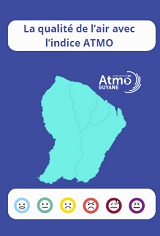Blada.com
mardi 03 février
Boîtes aux lettres
Courrier des lecteurs
Petites annonces
Emploi / Formation
Covoiturage
Infos citoyennes
Infos citoyennes
31/08/21
Pourquoi veulent-ils intégrer le comité citoyen pour la transparence ?
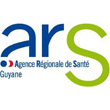 Plus de 300 Guyanais ont manifesté leur intérêt pour participer au comité citoyen de la transparence sur la gestion de l’épidémie Covid en Guyane. Le préfet, le président de la Collectivité territoriale et la directrice générale de l’Agence Régionale de Santé (ARS) ont jusqu’à jeudi pour s’entendre sur les futurs membres du comité. Parmi les répondants, nombreux sont ceux qui veulent contribuer à lutter contre les fausses informations, concrétiser leur engagement citoyen, améliorer la connaissance scientifique de la population, faciliter les relations entre l’administration et les habitants et aider aux décisions sur les mesures de lutte contre l’épidémie.
Plus de 300 Guyanais ont manifesté leur intérêt pour participer au comité citoyen de la transparence sur la gestion de l’épidémie Covid en Guyane. Le préfet, le président de la Collectivité territoriale et la directrice générale de l’Agence Régionale de Santé (ARS) ont jusqu’à jeudi pour s’entendre sur les futurs membres du comité. Parmi les répondants, nombreux sont ceux qui veulent contribuer à lutter contre les fausses informations, concrétiser leur engagement citoyen, améliorer la connaissance scientifique de la population, faciliter les relations entre l’administration et les habitants et aider aux décisions sur les mesures de lutte contre l’épidémie.
Ils sont chefs d’entreprise, agents municipaux, soignants, retraités, responsables associatifs... Plus de 1 400 Guyanais ont ouvert le questionnaire pour faire partie du comité citoyen de la transparence sur la gestion de l’épidémie Covid en Guyane. Près de 500 ont répondu, dont 314 à toutes les questions, conditions sine qua non pour que leur candidature puisse être retenue. Il leur était demandé de fournir leurs coordonnées, leurs motivations à participer à ce comité et leurs engagements citoyens. Le préfet Thierry Queffelec, le président de la Collectivité territoriale (CTG) Gabriel Serville et la directrice générale de l’ARS Clara de Bort doivent désormais proposer une sélection de candidats en veillant à ce que celles-ci soient diversifiées et de nature à recueillir le consensus. Les personnes retenues pour faire partie du comité citoyen seront dévoilées jeudi lors de la réunion de la cellule interministérielle de crise (CIC).
La moyenne d’âge des 314 répondants est de 48 ans ; le plus jeune à 19 ans et le plus âgé 87. Les hommes sont légèrement majoritaires (170, 54 %) ; les habitants de l’agglomération cayennaise très largement (83 %). Parmi eux, une cinquantaine souligne l’importance de lutter contre les fausses informations en tous genres que l’épidémie a fait germer. Ainsi, une pharmacienne cayennaise dit avoir « constaté l’intérêt des patients lorsque l’on prend le temps de leur donner des explications et l’impact positif produit (…) L’heure est venue de partager des informations fiables, d’adapter un discours audible par tous pour apaiser une situation agitée et permettre de nouer un lien brisé. »
Un autre enjeu relevé par certains candidats est d’améliorer la relation entre l’administration, en particulier d’Etat, et la population. Un formateur en sécurité incendie constate que « la désinformation des réseaux sociaux et les contre-vérités ont mis à mal la confiance de la population envers ses élus et les représentants du gouvernement ». Ce comité citoyen a donc, à ses yeux, pour mission d’ « attester de la véracité de ce que déclare l’administration ». Alexis, de Cayenne, veut que ce comité permette de « débattre et vulgariser », d’apporter de la pédagogie sur les sujets liés à la crise.
Pour certains, il faut rétablir la confiance en l’administration mais aussi en… la science. C’est ce que souligne un ancien syndicaliste enseignant. Intégrer le comité de transparence lui permettrait d’ « assurer (son) rôle de citoyen face à la pandémie ». Aude, de Cayenne, reconnaît avoir « cru un temps au système complotiste ». En participant à ce comité, elle souhaite « objectiver les choses (…) apporter sa pierre (…) ramener un peu de sérénité sur le territoire ». En ramenant cette sérénité, certains espèrent aider à construire les mesures pour lutter contre l’épidémie et à les rendre plus acceptables par la majeure partie de la population.
La méthode apparaît enfin essentielle pour beaucoup, après plus d’un an de polémiques sur l’épidémie. Un spécialiste des énergies renouvelables note ainsi qu’il sera « important de dépasser nos propres avis et croyances, afin de mener des débats contradictoires, de faire émerger de nos actuelles oppositions une démarche constructive et porter des avis et orientations qui permettront aux responsables institutionnels de prendre les décisions adaptées à la Guyane et ses populations. »
Cet article est issu de la Lettre pro de l’Agence régionale de santé. Vous pouvez vous y abonner en remplissant le formulaire suivant : https://forms.sbc28.com/5a8bed50b85b5350ef1cd117/t13M7zUZQi2XMq5E3DdnhQ/0WQoeDwjRXqJblCpKbLDzA/form.html
More than 300 Guyanese have expressed their interest in participating in the citizen transparency committee on the management of the Covid epidemic in French Guiana. The prefect, the president of the Territorial Collectivity and the director general of the Regional Health Agency (ARS) have until Thursday to agree on the future members of the committee. Among the respondents, many are those who want to contribute to the fight against false information, to concretize their civic engagement, to improve the scientific knowledge of the population, to facilitate the relations between the administration and the inhabitants and to help in the decisions on the measures of fight against the epidemic.
They are business leaders, municipal officials, caregivers, retirees, association managers ... More than 1,400 Guianese people have opened the questionnaire to be part of the citizen transparency committee on the management of the Covid epidemic in French Guiana. Nearly 500 responded, including 314 to all the questions, a sine qua non for their candidacy to be accepted. They were asked to provide their contact details, their motivations for participating in this committee and their civic commitments. The prefect Thierry Queffelec, the president of the Territorial Collectivity (CTG) Gabriel Serville and the director general of the ARS Clara de Bort must now propose a selection of candidates while ensuring that they are diversified and likely to collect the consensus. The people selected to be part of the citizens' committee will be unveiled Thursday during the meeting of the interministerial crisis unit (CIC).
The average age of the 314 respondents is 48; the youngest at 19 and the oldest 87. Men are slightly in the majority (170, 54%); the inhabitants of the Cayenne conurbation very largely (83%). Among them, about fifty underlined the importance of combating the false information of all kinds that the epidemic has caused to germinate. Thus, a Cayenne pharmacist says she has "noticed the interest of patients when we take the time to give them explanations and the positive impact produced (...) The time has come to share reliable information, to adapt a speech audible by all to calm a troubled situation and allow a broken link to be established. "
Another challenge identified by some candidates is to improve the relationship between the administration, in particular the state, and the population. A trainer in fire safety notes that "the disinformation of social networks and the untruths have undermined the confidence of the population in their elected officials and government representatives". This citizens' committee therefore has, in his view, the mission of "attesting to the veracity of what the administration declares". Alexis, from Cayenne, wants this committee to "discuss and popularize", to provide education on issues related to the crisis.
For some, it is necessary to restore confidence in the administration but also in ... science. This is what a former teacher unionist points out. Joining the transparency committee would allow it "to ensure (its) role as a citizen in the face of the pandemic". Aude, from Cayenne, admits having "believed for a time in the conspiracy system". By participating in this committee, she wishes to "make things more objective (...) to bring her stone (...) to bring a little serenity back to the territory". By bringing this serenity back, some hope to help build the measures to fight the epidemic and make them more acceptable to the majority of the population.
The method finally appears essential for many, after more than a year of controversy over the epidemic. A specialist in renewable energies thus notes that it will be "important to go beyond our own opinions and beliefs, in order to lead contradictory debates, to bring out of our current oppositions a constructive approach and to bring opinions and orientations which will allow institutional managers to take decisions adapted to French Guiana and its populations. "
This article is from the Professional Letter of the Regional Health Agency. You can subscribe to it by filling out the following form: https://forms.sbc28.com/5a8bed50b85b5350ef1cd117/t13M7zUZQi2XMq5E3DdnhQ/0WQoeDwjRXqJblCpKbLDzA/form.html
Raccourcis


passer une petite annonce

passer une annonce de covoiturage
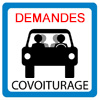

passer une annonce d’emploi


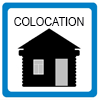
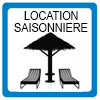

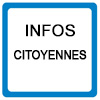
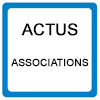
associations, postez vos actualités

participez au courrier des lecteurs
La Guyane c’est ici
La qualité de l’Air avec
ATMO
Photothèque

Lancements 2022
Vol 259 Ariane 5



